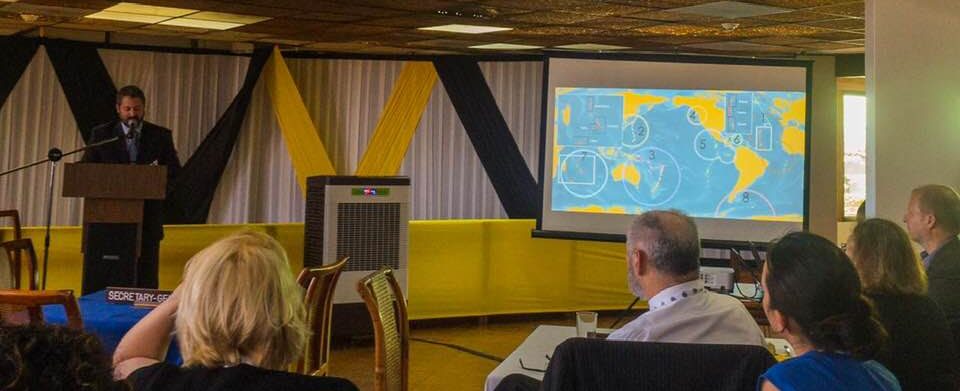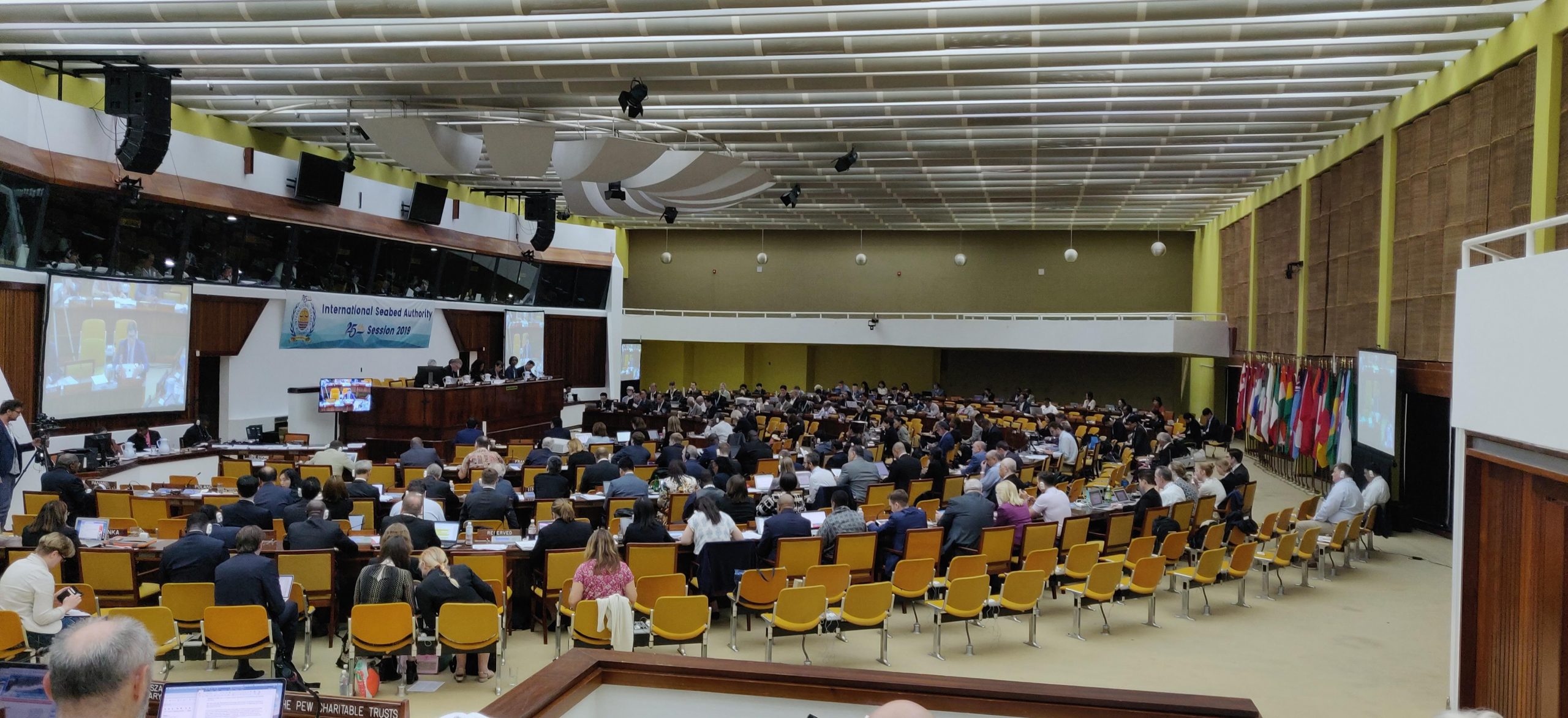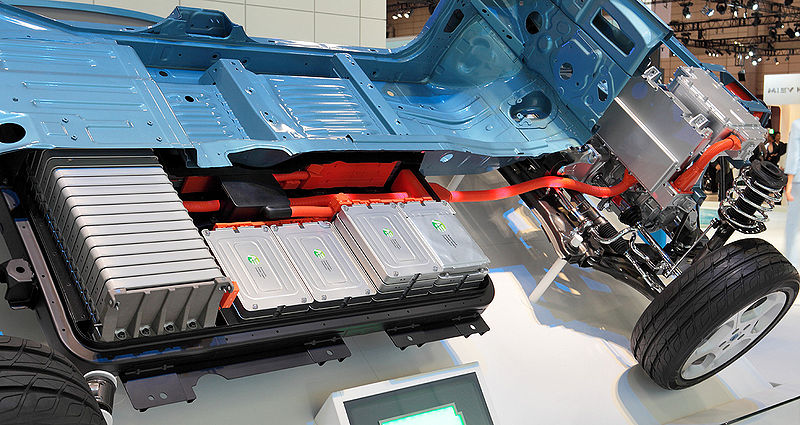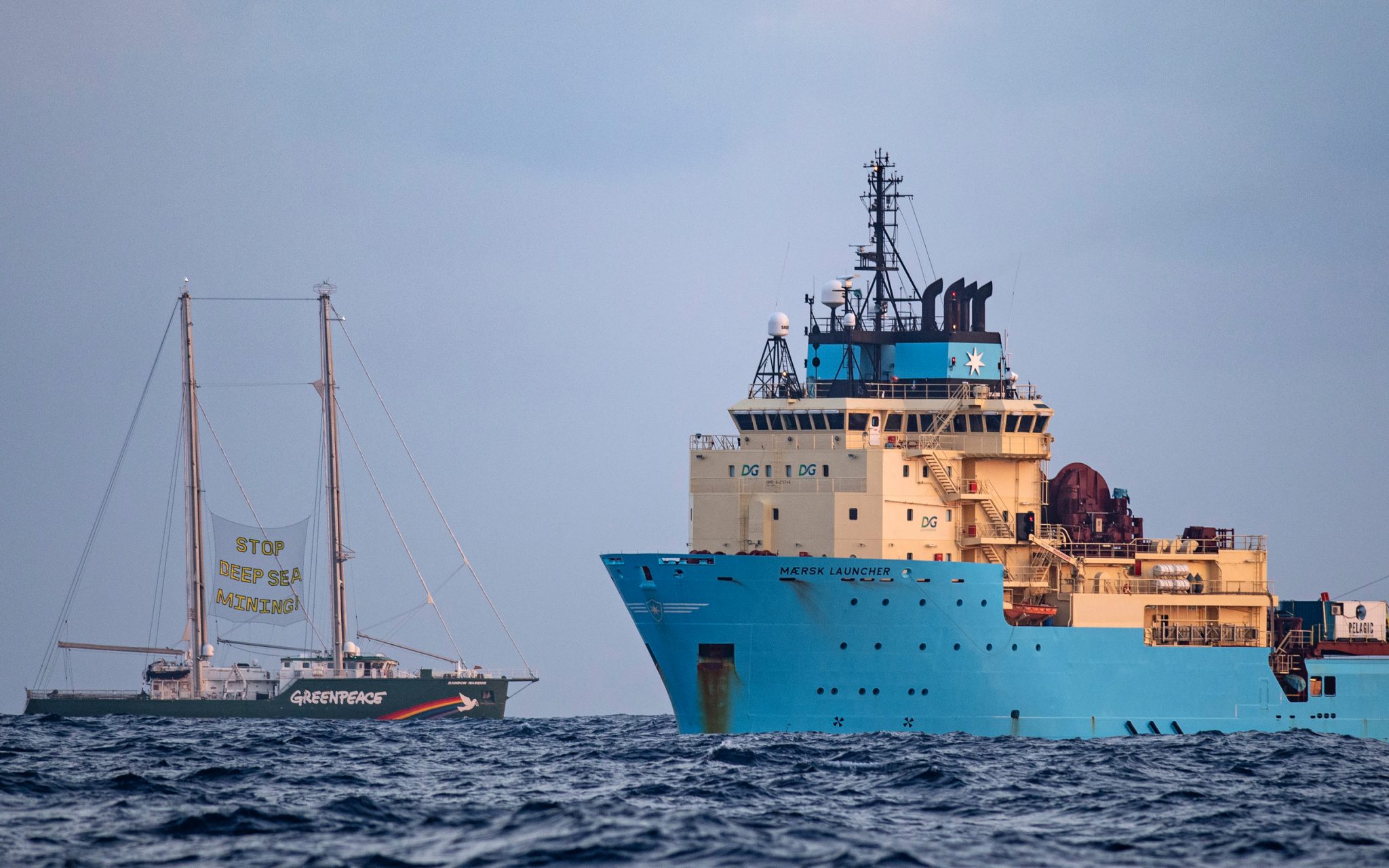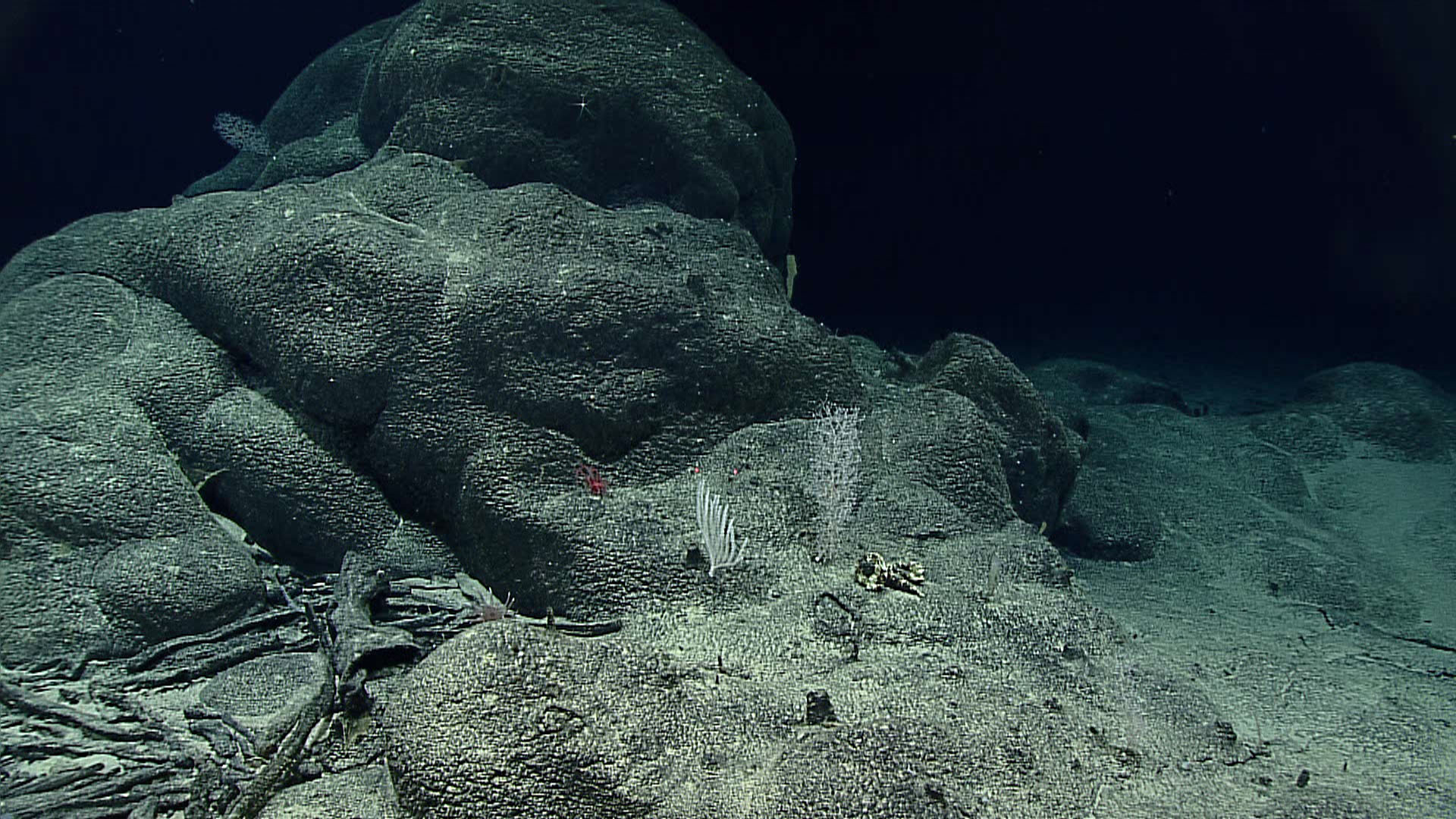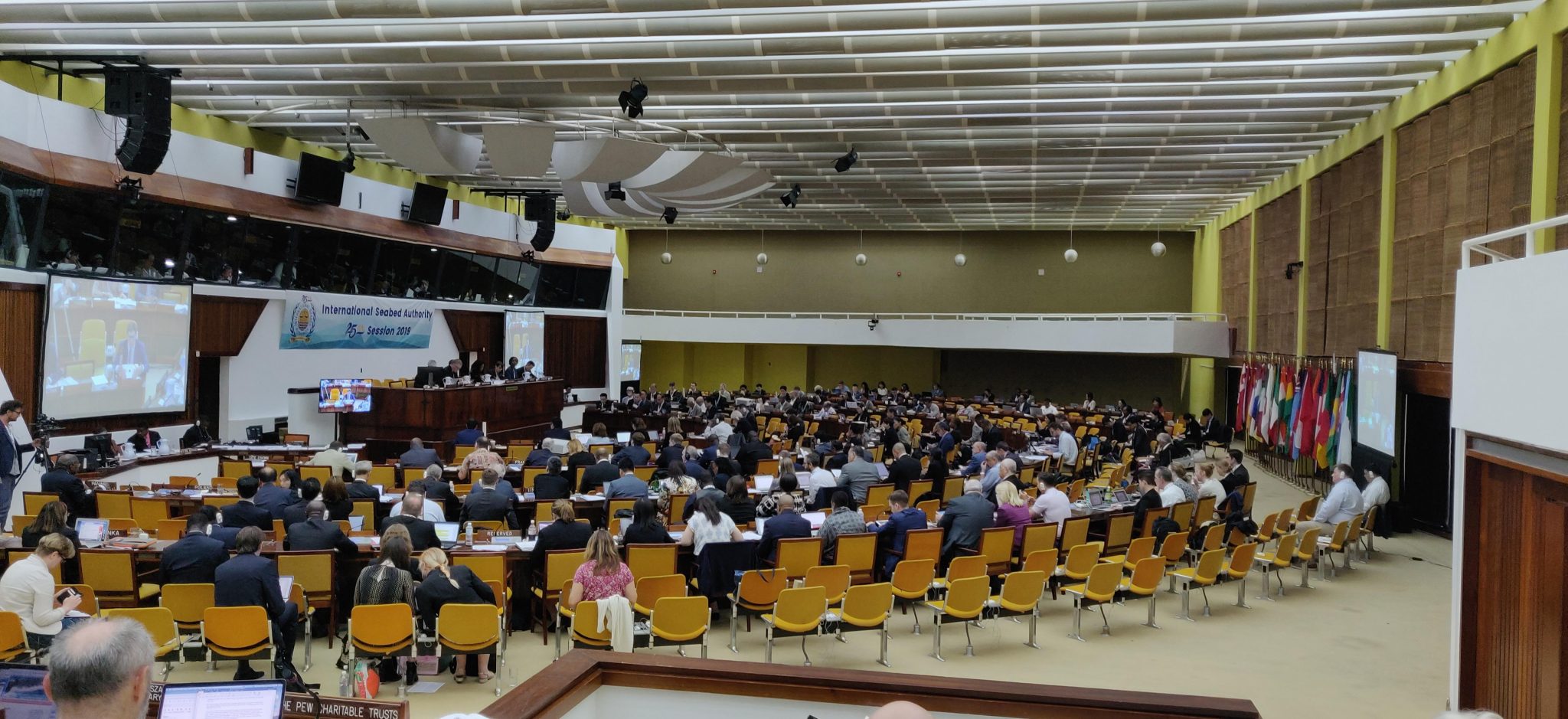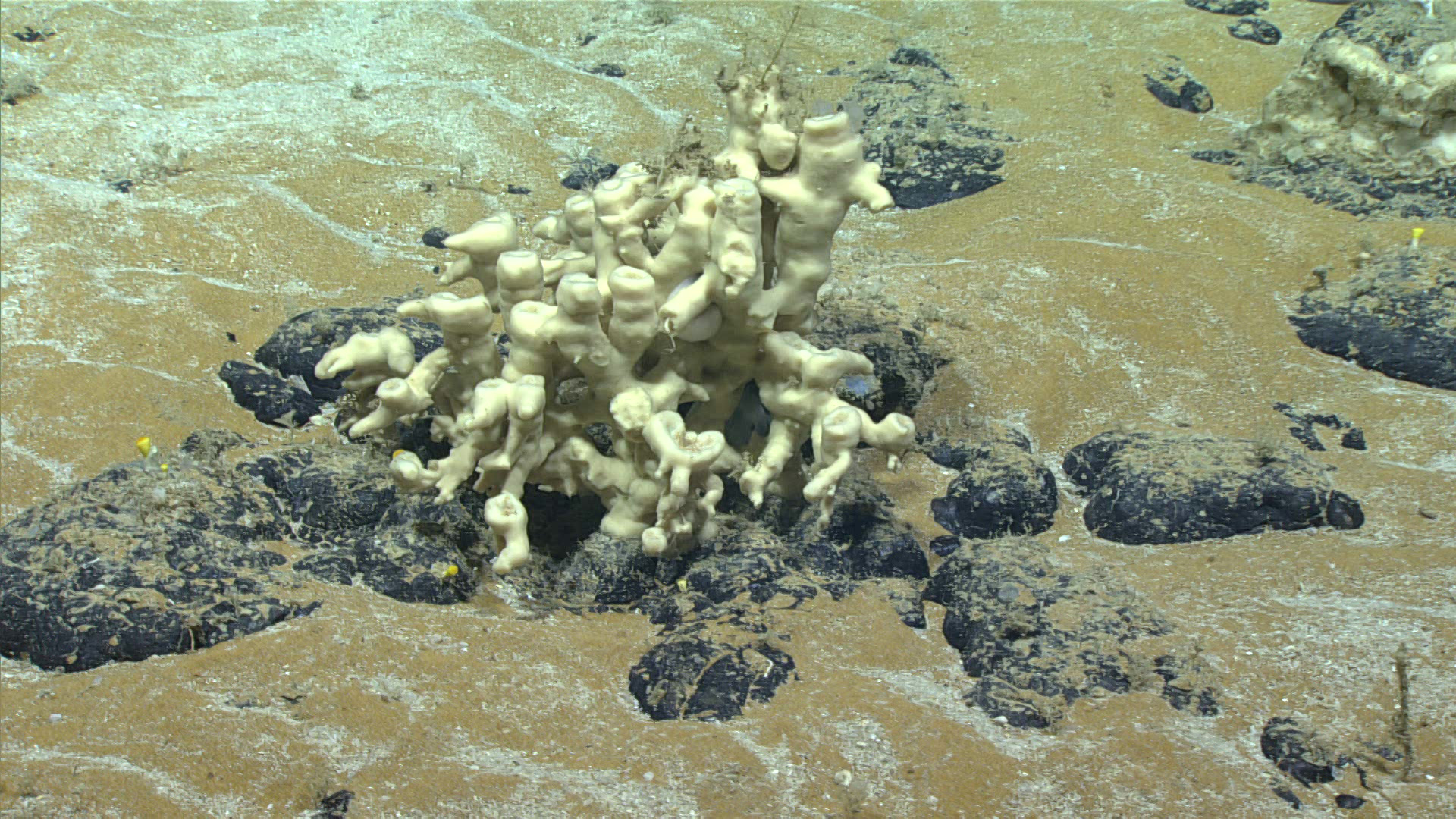Earlier this month, Mining.com published an article on the next steps in the development of deep-sea mining which featured a pretty surprising statement from the CEO of The Metals Company: “People think we are debating if this (deep sea mining) should happen or not, and that’s gone. It’s happening.” Gerard Barron/Mining.com One of the interesting … Read More “No, the deep-sea mining debate is not “gone”” »
This month, delegations from around the world agreed upon a treaty to protect biodiversity beyond national jurisdiction — ocean life beyond the limit of any country’s borders. The High Seas Treaty represents the culmination of over 2 decades of debate and negotiation. Once adopted, it establishes a framework for the protection and equitable sharing of … Read More “What does the high seas biodiversity treaty means for the future of deep-sea mining?” »
The third part of the 27th session of the International Seabed Authority, a meeting where the rules and regulations about how the deep ocean will be mined, begins today. If process is your jam, you can watch the UN negotiations here: https://isa.org.jm/web-tv For a very concise overview of where we currently stand, I published the … Read More “A roundup of recent deep-sea mining news” »
On April 28, 2022, I was invited to give a short talk to a gathering of Environmental NGO representatives to provide an overview and my perspective on the current state of development for deep-sea mining. Below is the transcript of that talk. Good afternoon and thank you for inviting me. Today I’m going to give … Read More “Deep-Sea Mining: A whirlwind tour of the state of the industry and current policy regimes” »
As in-person negotiations on the future of exploitation in the deep ocean resume this week in Kingston Jamaica, we reflect back on the last two years of development as reported on our sister site, the Deep-sea Mining Observer. This article first appeared on August 26, 2021. Deep-sea mining is frequently framed as a race to the seafloor. … Read More “Two Years of Deep-sea Mining in Review: For Deep-sea mining, battery technology is the ultimate x-factor” »
As in-person negotiations on the future of exploitation in the deep ocean resume this week in Kingston Jamaica, we reflect back on the last two years of development as reported on our sister site, the Deep-sea Mining Observer. This article first appeared on April 15, 2021. On Wednesday, March 30, several major technology and automotive companies joined … Read More “Two Years of Deep-sea Mining in Review: Major Brands Say No to Deep-sea Mining, for the Moment” »
As in-person negotiations on the future of exploitation in the deep ocean resume this week in Kingston Jamaica, we reflect back on the last two years of development as reported on our sister site, the Deep-sea Mining Observer. This article first appeared on January 29, 2021. Since the pandemic brought travel to a halt, the International Seabed … Read More “Two Years of Deep-sea Mining in Review: Delegates struggle to develop Regional Environmental Management Plans during a global pandemic” »
As in-person negotiations on the future of exploitation in the deep ocean resume this week in Kingston Jamaica, we reflect back on the last two years of development as reported on our sister site, the Deep-sea Mining Observer. This article first appeared on August 26, 2021. The Republic of Nauru turned the deep-sea mining world on its … Read More “Two Years of Deep-sea Mining in Review: Has pulling the Trigger already backfired?” »
As in-person negotiations on the future of exploitation in the deep ocean resume this week in Kingston Jamaica, we reflect back on the last two years of development as reported on our sister site, the Deep-sea Mining Observer. This article first appeared on June 30, 2021. The spring and summer of 2021 will likely stand as the … Read More “Two Years of Deep-sea Mining in Review: A pivotal moment in the history of deep-sea mining” »
As in-person negotiations on the future of exploitation in the deep ocean resume this week in Kingston Jamaica, we reflect back on the last two years of development as reported on our sister site, the Deep-sea Mining Observer. This article first appeared on November 19, 2021. Throughout the 26th Session of the International Seabed Authority, … Read More “Two Years of Deep-sea Mining in Review: What happens when we pull the trigger?” »
